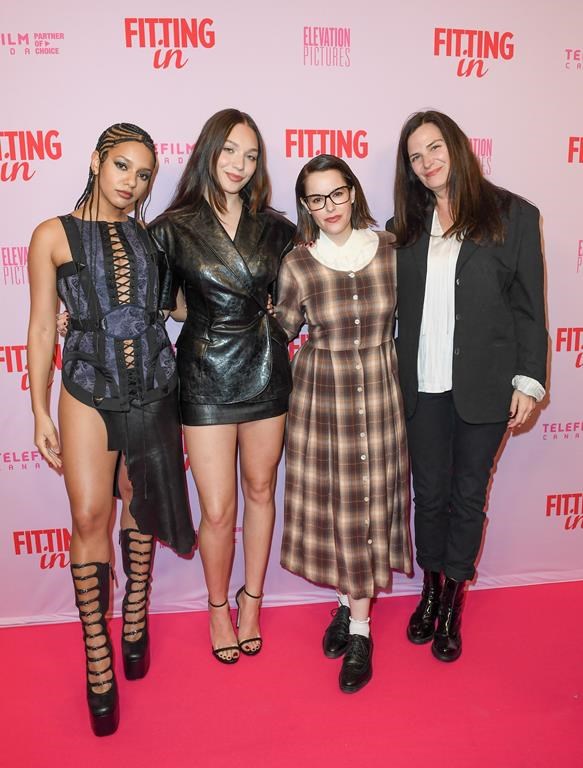TORONTO — A lesson in self-care was not on Maddie Ziegler’s agenda when she arrived on the set of Canadian director Molly McGlynn’s semi-autobiographical movie “Fitting In.”
But portraying Lindy, a teenager whose exploration of her sexuality is upended by a rare reproductive disorder diagnosis, turned out to be just that – and “very necessary” – she said.
“It taught me to be nicer to myself and love myself more, especially through Lindy, which was really special,” the U.S. actor said in a recent interview. “And I did not intend on having that experience coming into this film.”
Ziegler’s onscreen mother, veteran Canadian actor Emily Hampshire, learned something new too.
McGlynn had created “such an accepting environment,” the “Schitt’s Creek” star said, that all her usual body image hang-ups went out the window.
“I’ve been an actor all my life and a lot of time I’m like, ‘Oh I look big in this,’” Hampshire said. “In that environment, I didn’t even think of that.”
Playing Lindy’s mother Rita, who is grappling with the aftermath of her breast cancer diagnosis and treatment, led Hampshire to revisit her own teenage years and “a kind of generational trauma” of female self-doubt that gets passed down in families, she said.
Both actors, who were in Toronto to promote “Fitting In” ahead of its theatrical release, credit the film’s honest discussions about sexuality, gender identity and womanhood with allowing them to feel free in front of the cameras.
The movie focuses on 16-year-old Lindy, who finds out during a routine pelvic exam that she has Mayer-Rokitansky-Kuster-Hauser syndrome, and because of it she has no uterus and her vagina is not properly developed.
The diagnosis throws Lindy, who until then had been excitedly but cautiously approaching the prospect of penetrative sex, into a tailspin as she tries to figure out her intimate and family relationships – and how to use the box of vaginal dilators a nurse gave her.
The story is based on McGlynn’s own experience with MRKH, a condition she said used to be a source of pain and shame. When the film had its Canadian premiere at the Toronto International Film Festival last September, the Montreal-born director said the emotional stakes were “really high,” but she still wanted the movie to be joyful and funny.
She said she wanted her script to mine the anger and confusion of a life-altering diagnosis for reflections on what it means to be a teenage girl and then a woman, and how narrow society’s definitions of sex and sexual pleasure can be.
“All of those subjects are very taboo and like, people are scared to talk about that sort of stuff but Molly gave us the opportunity and the space to be very open, especially her being as vulnerable as she was to … tell this story,” said Ziegler, who has been in the spotlight since childhood, including as a dancer on a reality show.
“But I wasn’t scared at all. I was mainly scared just to get it right for (McGlynn),” she said. “People with MRKH seeing themselves being represented for the first time on screen is so powerful, and I feel so honoured to be a voice for the community.”
Hampshire said she’s proud of the movie’s “authentic” inclusions of different experiences, which included casting an intersex actor to play an intersex character who helps Lindy navigate her new reality.
And she hopes that people watching the movie learn not only about MRKH, but also that “the thing you think … makes you weird, it actually makes you special.”
“Fitting In” hits theatres on Friday.
This report by The Canadian Press was first published Jan. 31, 2024.


